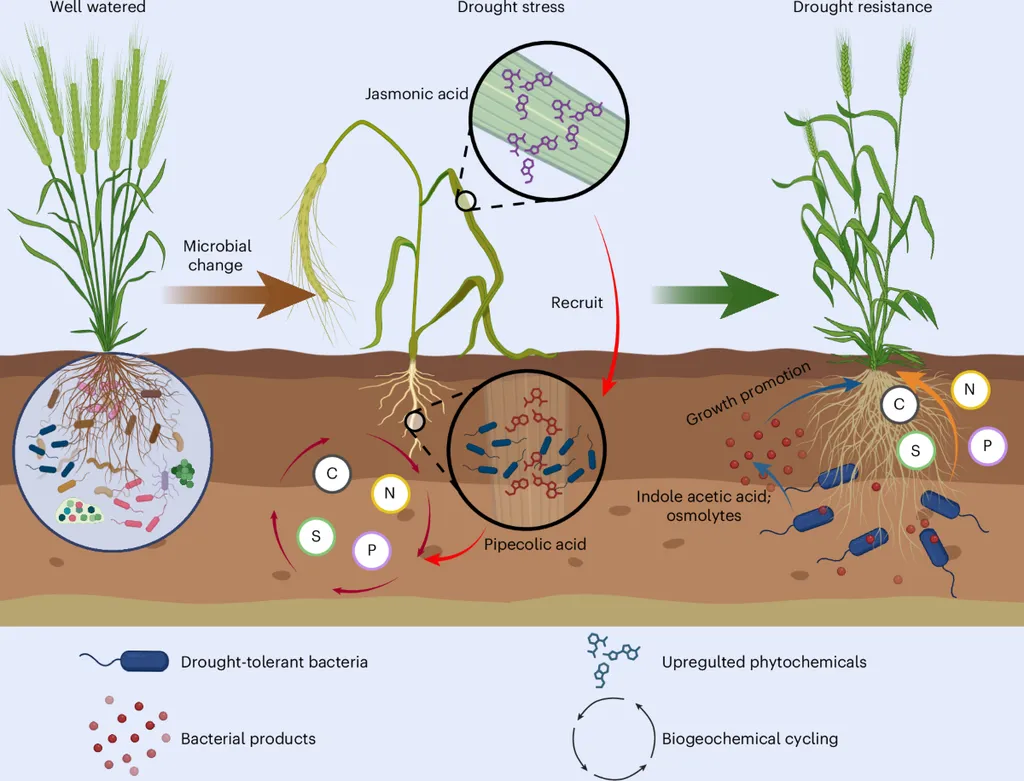In the heart of China’s arid northwest, researchers have uncovered a promising solution to boost wheat productivity in calcareous soils, offering a sustainable alternative to chemical fertilizers. Muhammad Zahid Mumtaz, a scientist at the State Key Laboratory of Aridland Crop Science, Gansu Agricultural University, led a study that identified specific strains of Bacillus altitudinis and Bacillus cereus bacteria capable of enhancing soil fertility and nutrient uptake in wheat.
The study, published in the journal “Chemical and Biological Technologies in Agriculture” (translated as “Chemical and Biological Technologies in Agriculture”), focused on the potential of mineral-dissolving rhizobacteria to improve soil biochemical properties. These bacteria, isolated from wheat rhizospheres, demonstrated an impressive ability to dissolve insoluble minerals and produce beneficial metabolites, ultimately promoting nutrient availability in the soil.
“Our research shows that these bacteria can significantly improve soil enzymatic activities and microbial biomass, leading to enhanced nutrient acquisition and biomass production in wheat,” Mumtaz explained. The study found that inoculation with these bacteria increased soil enzymatic activities, microbial biomass carbon, nitrogen, and phosphorus, and nutrient availability in the wheat rhizosphere.
The most effective strains, identified through 16S rRNA partial gene sequencing, were Bacillus altitudinis (strains SAM1, SAM7, SAM13, and SAM15) and Bacillus cereus (strain SAM9). These strains not only dissolved insoluble tricalcium phosphate, mica, zinc oxide, and manganese oxide but also promoted nutrient availability through the production of organic acids.
The practical implications of this research are substantial. The sole inoculation with B. cereus SAM9 and co-inoculation with B. cereus SAM9 + B. altitudinis SAM13 showed the most significant improvements in wheat growth and grain attributes. This suggests that these bacterial strains could be integrated into commercial biofertilizer formulations, providing a sustainable and eco-friendly alternative to chemical fertilizers.
The potential impact on the agricultural sector is immense. As the global population grows, the demand for food increases, and sustainable agricultural practices become ever more critical. This research offers a promising avenue for enhancing crop productivity while reducing the environmental footprint of agriculture.
Mumtaz’s findings could pave the way for future developments in biofertilizer technology, potentially revolutionizing how we approach soil fertility and nutrient management. As the world seeks to balance agricultural productivity with environmental sustainability, such innovations are not just welcome but necessary.
The study’s results highlight the importance of continued research into microbial solutions for agricultural challenges. By harnessing the power of beneficial bacteria, we can move towards a more sustainable and productive future for global agriculture.

